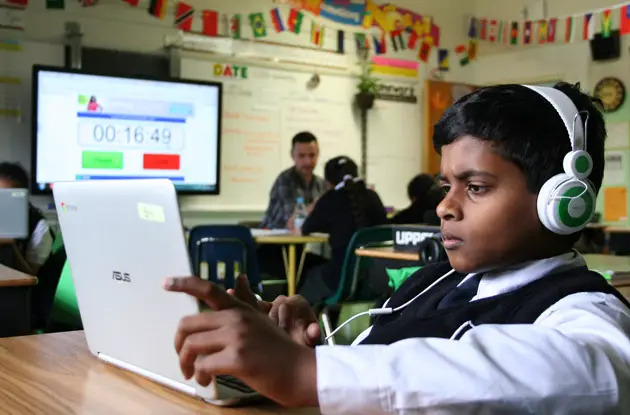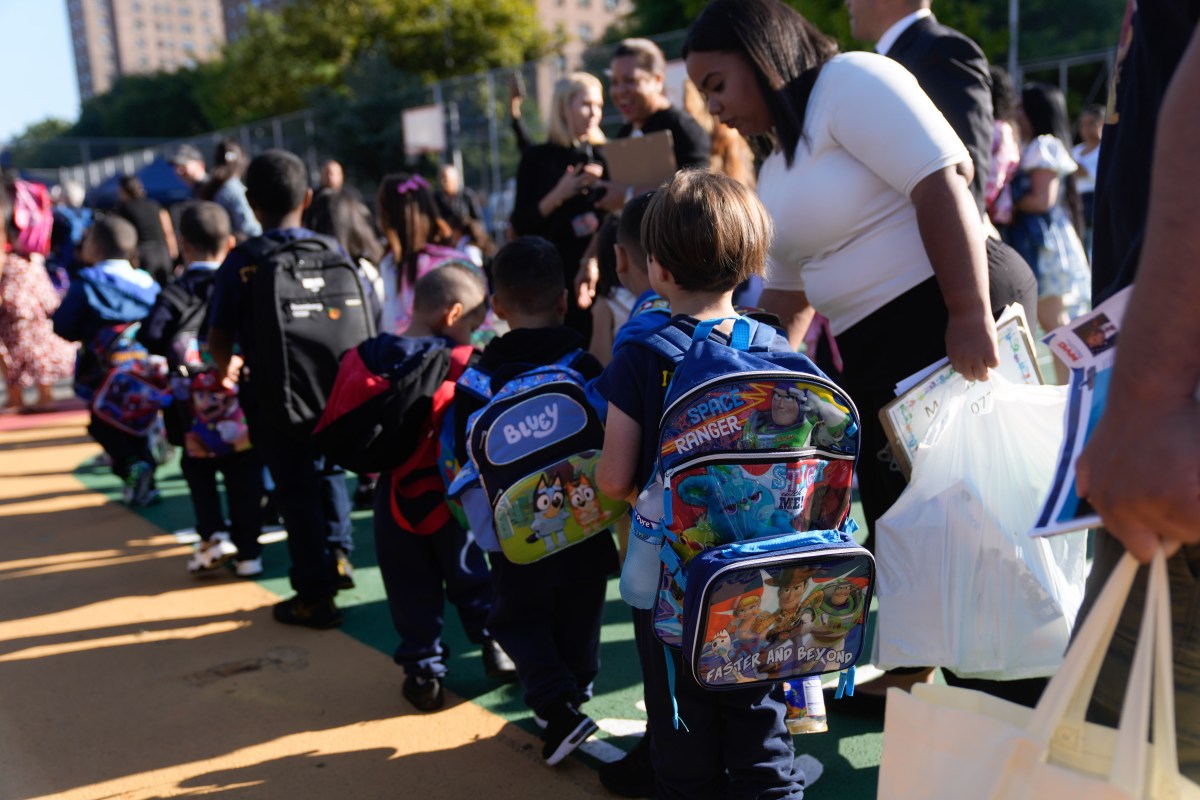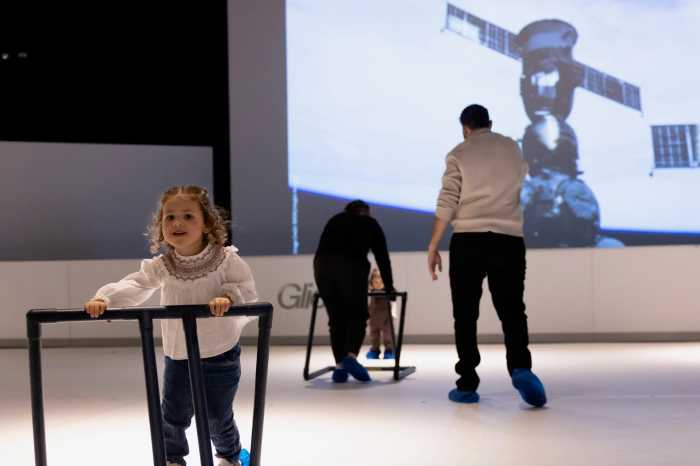
Editor’s Note: When he was campaigning for office, Mayor Bill de Blasio promised a course correction on a number of the Bloomberg administration’s key education policies. It’s now been a year since he took office, which seemed like a good time to ask Chalkbeat New York Bureau Chief, Sarah Darville, for an overview of Department Of Education policies under de Blasio’s appointee, Carmen Fariña—and what we can expect ahead. –Eric Messinger
Universal Pre-Kindergarten
Where Things Are: The city relentlessly pushed its pre-K expansion this summer, and things have gone smoothly so far. About 50,000 4-year-olds are in full-day pre-K programs this year at a public school or through a community organization. It didn’t all happen the way Mayor de Blasio wanted it to—through a tax on New Yorkers making more than $500,000 a year—but it got done, thanks to $300 million from the state.
Where Things Are Going: The city plans to add about 20,000 more full-day seats next year, with the promise of providing a pre-K seat to any city 4-year-old who wants to take advantage of the program. There’s sure to be more scrutiny of the programs as they continue to expand—especially around how they’re dealing with students who don’t speak English and who have disabilities—whether the programs are finding the right mix between play and getting kids prepared for Kindergarten, and whether all of the quickly-approved programs are safe and well-staffed.
Charter Schools
Where Things Are: Mayor de Blasio isn’t a fan of charter schools, which he sees as siphoning resources from traditional public schools. But he doesn’t have control of their growth, and 17 more were recently approved to open in the city. He also lost a major political and public relations battle in the spring, when an attempt to keep three Success Academy Charter Schools out of public-school buildings led to new state legislation which now requires the city to provide space, or funding for space, to charter schools.
Where Things Are Going: The de Blasio administration has to make a number of big decisions. Number one: Will the city allow most of the new charter schools to open inside of public-school buildings, setting up even more co-location tensions, or will the city pay millions of dollars in subsidies for private space instead? And if the city decides to allow the charter schools to open in public spaces, will there be strings attached to require schools to share resources or enroll certain high-needs students?
Changes In The City’s Elite Selective High Schools’ Admissions Policies
Where Things Are: Mayor de Blasio has been extremely critical of the admissions processes for the city’s elite high schools, including Stuyvesant and Brooklyn Tech, which admit students based on their performance on a single standardized test. But the city has yet to announce any changes to the admissions criteria, which in a few cases will require the help of the state legislature.
Where Things Are Going: Mayor de Blasio could change the policies for five of the schools immediately to include factors like attendance and grade-point averages. It’s likely that the de Blasio administration will look to enlist state lawmakers to come up with a solution for all of the schools in time for the next admissions round. But it’s not clear if the Mayor has the support he needs, since he faces strong opposition from the schools’ alumni groups and many city and state politicians.
School Report Cards
Where Things Are: A-through-F letter grades for schools have met their end, Chancellor Carmen Fariña announced in October. That’s tied to de Blasio’s promise to reduce the emphasis on competition among schools and to reduce the stress caused by state test scores, which made up a large portion of a school’s rating. Instead of a progress report with a prominent letter grade, each school got two reports in mid-November — one for families and one for educators — with survey and school-observation results along with test scores and graduation rates.
Where Things Are Going: As parents begin to use the reports to help make admissions decisions, it will become clearer if the reports offer enough straightforward takeaways for parents. But the reduced emphasis on test scores has been well-received so far.
Low-Performing Schools
Where Things Are: Mayor de Blasio recently announced a plan aimed at improving 94 schools that are struggling with low graduation rates and low test scores. The core of the plan is turning each school into a “community school” that offers a variety of extra services like English classes for parents and mental-health services meant to address students’ and families’ out-of-school needs. Each of the schools will also add an extra hour of instruction to the school day and receive funding for extra after-school programming, summer programs, and additional teacher training.
Where Things Are Going: The schools are now tasked with coming up with an improvement plan, and the city is facing a big task of making dozens of new partnerships work between schools and community organizations. The mayor’s three-year plan includes new accountability measures for the schools, which will be expected to meet new standards or face staff changes, reorganization, or closure.
Community Schools & Afterschool Programs
Where Things Are: Beyond pre-K, the de Blasio administration has promised two other major education initiatives. One was afterschool programs for every middle-schooler, which is rolling out now. The other is an expansion of community schools, which offer wraparound services for students, parents, and local residents, like health services or job training. The city has already announced plans to turn 40 schools into community schools, and another 94 will get those services as part of de Blasio’s “renewal schools” plan.
Where Things Are Going: It’s still unclear how enrollment at the after-school programs looks this year. Getting 12-year-olds to stay at school longer than they have to isn’t always an easy sell, and the success of the programs will depend on students actually taking part. Coordinating the community-schools push, especially at schools that are already struggling, will be the city’s next big challenge.
Common Core/Teacher Evaluations/Teaching To The Test
Where Things Are: Mayor de Blasio and Fariña support the Common Core, a set of reading and math standards that New York State adopted in 2010 that in many cases require teachers to adjust their instruction and students to take on more challenging assignments. The city’s move to quickly tie state tests to the new standards and to a new teacher evaluation system led to backlash from many parents and educators, though. State lawmakers have already hit the pause button on using teacher evaluations to punish teachers, and the city is no longer using state test scores as the primary factor in most school admissions or grade-promotion decisions.
Where Things Are Going: Teachers are still trying to figure out how exactly to change what they do to align to the Common Core, a big remaining challenge for the administration. And as they try to de-emphasize state test scores, there is still little the city can do to actually reduce the number of tests students take.
Other Parent-Focused Efforts
Where Things Are: Fariña has connected almost every one of her policy changes to increasing “parent engagement,” something she says the last mayoral administration neglected. The new teacher’s union contract includes time that teachers are required to spend calling or interacting with parents, and she’s insisted on longer parent conferences, among other initiatives.
Where Things Are Going: We’re about to see the city start rewarding schools for making sure parents feel involved. This school year will be a good test of whether navigating the school system feels different to parents, or if other frustrations (like the city’s delay in updating middle school admissions criteria, for example) get in the way.
Fariña vs. Her Predecessors
Where Things Are: Fariña is at a decided advantage when talking to teachers and principals: She’s a lifelong educator who is intimately familiar with the city’s school system. That has engendered a high level of trust among educators—see the standing ovations she got when taking over the school system earlier in the year. She also has made a habit of offering specific (often extremely specific) recommendations to teachers and principals about everything from teaching history to classroom decorations.
Where Things Are Going: Some educators seem hungry for more specific long-term plans. But her credibility when it comes to instruction isn’t going away anytime soon.
Chalkbeat is a nonprofit news organization covering educational change efforts in the communities where improvement matters most. The network has bureaus in New York, Colorado, Indiana, and Tennessee (so far). For more Chalkbeat coverage, visit chalkbeat.org. You can contact Sarah Darville at sdarville@chalkbeat.org.













